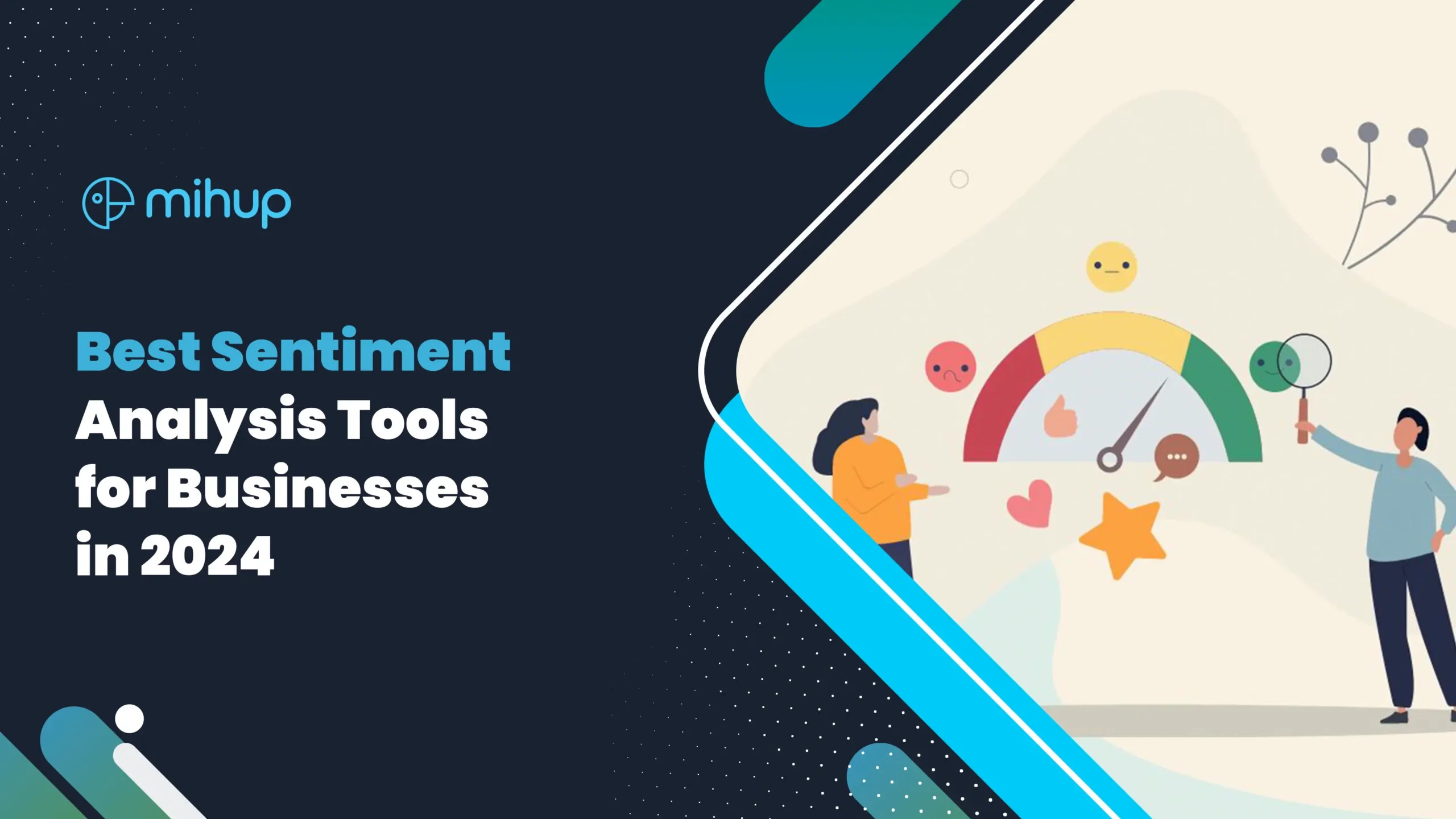E-commerce companies operate in a highly competitive landscape where customer satisfaction and loyalty are paramount to success. With the rapid growth of online shopping, these companies face the challenge of managing an ever-increasing volume of customer inquiries, requests, and issues. Contact center operations serve as a vital touchpoint for customers seeking assistance, information, or resolution to their concerns.
Traditionally, customer interactions in contact centers have been handled manually by human agents. While these agents possess valuable skills and knowledge, manual handling of customer interactions can be time-consuming, costly, and prone to errors. Additionally, as customer expectations continue to rise, businesses must find innovative ways to deliver exceptional customer experiences and maintain high levels of satisfaction.
Generative AI technology solves these challenges by revolutionizing how e-commerce companies manage their contact center operations. Generative AI models, powered by natural language processing and machine learning algorithms, can automate and streamline various aspects of customer interactions, bringing numerous benefits to both businesses and customers.
1) Automated Response Generation
One of the most impactful use cases for generative AI in e-commerce contact center operations is the automation of response generation to customer inquiries. Generative AI models, equipped with natural language processing (NLP) and machine learning capabilities, have the ability to comprehend the nuances and context of customer queries, enabling them to generate accurate and contextually appropriate responses.
When a customer reaches out to an e-commerce company’s contact center, they often have questions or concerns related to products, orders, returns, or general inquiries. In a traditional setup, customer service representatives would manually process these inquiries and provide responses based on their knowledge and training. However, this manual handling process is time-consuming and can lead to inconsistencies or errors in the information provided to customers.
By leveraging generative AI, e-commerce companies can automate the response generation process. AI models are trained on vast amounts of data, including previous customer interactions, product catalogs, FAQs, and knowledge bases. This training enables the models to understand the intent behind customer inquiries, extract relevant information, and generate accurate responses.
The power of NLP allows AI models to comprehend and interpret the natural language used by customers, understanding the meaning and context of their inquiries. Through machine learning algorithms, the models continuously learn and improve over time, refining their ability to generate accurate and relevant responses.
The benefits of using generative AI for response generation in e-commerce contact centers are manifold. Firstly, it saves valuable time for customer service representatives. Instead of spending significant amounts of time crafting individual responses, agents can focus on more complex or high-touch customer interactions that require human expertise and empathy. This improves the efficiency of the contact center, enabling agents to handle a larger volume of inquiries.
Moreover, generative AI ensures consistency and accuracy in the information provided to customers. Since AI models follow predefined rules and guidelines, they can deliver consistent responses regardless of the agent handling the interaction. This consistency helps in building trust and reliability, as customers receive uniform information irrespective of the channel or time of contact.
Additionally, generative AI can provide suggestions or recommendations to customer service representatives, acting as a real-time knowledge base that assists agents in providing accurate and up-to-date information. This feature enhances the performance and effectiveness of customer service teams, enabling them to address customer inquiries more efficiently.
By automating the response generation process, generative AI not only improves the overall efficiency of e-commerce contact center operations but also enhances customer satisfaction. Customers receive timely, accurate, and personalized responses to their inquiries, leading to a better customer experience and increased loyalty.
2) Customer Support Chatbots
Generative AI plays a crucial role in enabling the creation of intelligent chatbots that can handle a wide range of customer queries in e-commerce contact center operations. These chatbots, powered by AI, can be seamlessly integrated into various platforms such as e-commerce websites, mobile apps, and messaging platforms, providing customers with instant responses to their questions and concerns.
AI-powered chatbots offer several benefits that enhance the overall customer experience and streamline contact center operations. Here’s a closer look at how generative AI enables the capabilities of these intelligent chatbots:
-
- 24/7 Support
Unlike traditional contact centers with limited operating hours, AI-powered chatbots can provide round-the-clock customer support. This availability ensures that customers can receive assistance and answers to their queries at any time, even outside regular business hours. This 24/7 support enhances customer satisfaction and provides a seamless experience, regardless of the customer’s location or time zone.
-
- Personalized Recommendations
Generative AI enables chatbots to analyze customer data, including purchase history, browsing behavior, and preferences. With this information, chatbots can provide personalized product recommendations to customers, helping them discover relevant products and enhancing their shopping experience. By leveraging AI algorithms, chatbots can continuously learn and improve their recommendations, leading to more accurate and tailored suggestions over time.
-
- Order Tracking Updates
Customers often inquire about the status of their orders, tracking information, or estimated delivery times. AI-powered chatbots can access real-time order data and provide customers with instant updates on their orders. By eliminating the need for customers to contact a human representative for tracking inquiries, chatbots save time and resources while delivering timely information to customers.
-
- Assistance with Returns and Exchanges
Returns and exchanges are common concerns for e-commerce customers. AI-powered chatbots can guide customers through the return or exchange process, providing step-by-step instructions and addressing any queries or concerns they may have. Chatbots can access relevant policies, initiate return requests, and provide updates on the status of return shipments. This automated assistance streamlines the returns process, reduces customer effort, and improves overall satisfaction.
- Simultaneous Handling of Multiple Conversations
Unlike human agents who can handle a limited number of customer conversations at a time, AI-powered chatbots excel at multitasking. They can handle multiple customer interactions simultaneously, leading to reduced wait times for customers. This capability ensures that customers receive prompt responses, enhancing their satisfaction and engagement with the e-commerce brand.
By leveraging generative AI, e-commerce companies can deploy chatbots that offer 24/7 support, personalized recommendations, order tracking updates, and assistance with returns or exchanges. These chatbots not only provide immediate responses to customer queries but also contribute to reduced wait times, increased efficiency, and improved customer satisfaction.
3) Sentiment Analysis and Customer Insights
Generative AI models offer the capability to analyze customer interactions, such as chat transcripts, emails, and social media conversations, to gauge customer sentiment and identify emerging trends. This application of generative AI, known as sentiment analysis, provides valuable insights to e-commerce companies and helps them make data-driven decisions to enhance the overall customer experience.
Here’s a closer look at how generative AI enables sentiment analysis and its benefits in e-commerce contact center operations:
-
Gauging Customer Sentiment
Generative AI models can analyze the language, tone, and context of customer interactions to determine the sentiment expressed by customers. By classifying customer messages as positive, negative, or neutral, businesses gain a holistic understanding of customer satisfaction levels and the emotional states of their customer base. This information allows them to identify potential issues, prioritize responses, and take appropriate actions to address concerns promptly.
- Proactive Customer Support
Sentiment analysis empowers e-commerce companies to proactively address customer concerns. By identifying negative sentiment in real time, AI systems can alert customer service representatives or trigger automated responses to address issues promptly. This proactive approach helps prevent customer dissatisfaction and allows businesses to resolve problems before they escalate.
- Identifying Areas for Improvement
By analyzing customer interactions at scale, generative AI models can identify recurring themes, pain points, or areas of improvement. Businesses can gain valuable insights into common customer complaints, product issues, or service gaps, enabling them to make data-driven decisions to enhance their offerings. This analysis can inform product development, customer service training, and process improvements, ultimately resulting in a better overall customer experience.
- Targeted Marketing Campaigns
Sentiment analysis can provide invaluable inputs for developing targeted marketing campaigns. By understanding customer sentiments, e-commerce companies can tailor their messaging and promotions to resonate with their target audience. For example, if sentiment analysis reveals positive feedback regarding a specific product feature, the company can highlight that feature in its marketing materials to drive further engagement and sales.
- Monitor Customer Satisfaction
Generative AI allows businesses to track customer satisfaction levels over time. By analyzing sentiment trends, companies can identify shifts in customer sentiment, whether positive or negative and take necessary actions accordingly. This monitoring enables businesses to measure the impact of their customer experience initiatives and ensure that improvements are delivering the desired outcomes.
Sentiment analysis powered by generative AI provides valuable insights that help e-commerce companies enhance their overall customer experience. By gauging customer sentiment, proactively addressing concerns, identifying areas for improvement, enabling targeted marketing campaigns, and monitoring customer satisfaction, businesses can optimize their operations, foster customer loyalty, and drive growth.
4) Virtual Shopping Assistants
Generative AI offers e-commerce companies the opportunity to create virtual shopping assistants that can serve as personalized guides for customers throughout their online shopping journey. These virtual shopping assistants, powered by generative AI models, provide tailored product recommendations, engage in interactive conversations, and assist customers in finding the right products, thereby enhancing the overall shopping experience and increasing the likelihood of conversion.
Here’s a closer look at how generative AI enables the creation of virtual shopping assistants and their benefits in e-commerce contact center operations:
- Personalized Product Recommendations
Generative AI models can analyze vast amounts of customer data, including preferences, browsing history, and previous purchases, to generate personalized product recommendations. By understanding individual customer preferences, these virtual shopping assistants can suggest relevant products that align with the customer’s tastes and interests. This level of personalization enhances the customer’s shopping experience, increases engagement, and improves the chances of converting browsing customers into buyers.
- Interactive Conversations
Virtual shopping assistants powered by generative AI utilize natural language processing (NLP) to engage in interactive conversations with customers. They can understand and interpret customer queries and respond in a conversational manner. By providing an interactive and conversational shopping experience, these assistants mimic the experience of speaking with a knowledgeable salesperson in a physical store. This conversational aspect enhances customer engagement, encourages exploration, and builds customer trust and satisfaction.
- Product-related Questions
Virtual shopping assistants can address customer inquiries and provide detailed information about products. Customers can ask questions about product features, specifications, availability, or any other aspect they need clarification on. Generative AI models can comprehend the intent behind the questions and generate accurate and informative responses. This assistance helps customers make informed purchasing decisions and reduces the need for additional support from human agents, streamlining contact center operations.
-
Guided Product Discovery
Virtual shopping assistants can guide customers through the product catalog, helping them navigate and discover relevant items. By understanding customer preferences, the AI models can recommend complementary or alternative products based on the customer’s initial selection. This guidance facilitates the exploration of product options, improves product discovery, and enhances the customer’s overall shopping experience.
-
Upselling and Cross-selling Opportunities
Virtual shopping assistants can also seize upselling and cross-selling opportunities. By analyzing customer data and browsing behavior, the AI models can identify relevant product combinations or upgrades that align with the customer’s interests. This enables virtual shopping assistants to suggest complementary products, accessories, or higher-priced alternatives, maximizing the value of each customer transaction.
The benefits of virtual shopping assistants powered by generative AI extend beyond personalized recommendations and interactive conversations. They enhance customer engagement, streamline the shopping process, reduce the reliance on human agents for basic inquiries, and ultimately lead to improved customer satisfaction and increased conversion rates.
5) Voice-based Customer Support
With the rise of voice assistants like Siri, Alexa, and Google Assistant, voice-based customer support has gained significant popularity. Generative AI enables e-commerce companies to develop voice-based contact center operations, where customers can interact with AI-powered voice assistants for inquiries, support, and order management. By integrating voice recognition technology and natural language processing, these assistants can understand spoken commands, provide information, and execute actions, thereby offering a seamless and convenient customer experience.
Generative AI revolutionizes e-commerce contact center operations by providing automated response generation, intelligent chatbots, sentiment analysis, virtual shopping assistants, and voice-based customer support. By harnessing the power of AI, e-commerce companies can enhance customer experiences, streamline operations, and improve overall efficiency. With the ability to handle a high volume of inquiries, offer personalized assistance, and analyze customer sentiments, generative AI empowers businesses to deliver exceptional customer service and gain a competitive edge in the dynamic e-commerce landscape. As technology continues to advance, we can expect further advancements in generative AI, enabling even more sophisticated and tailored customer interactions.





